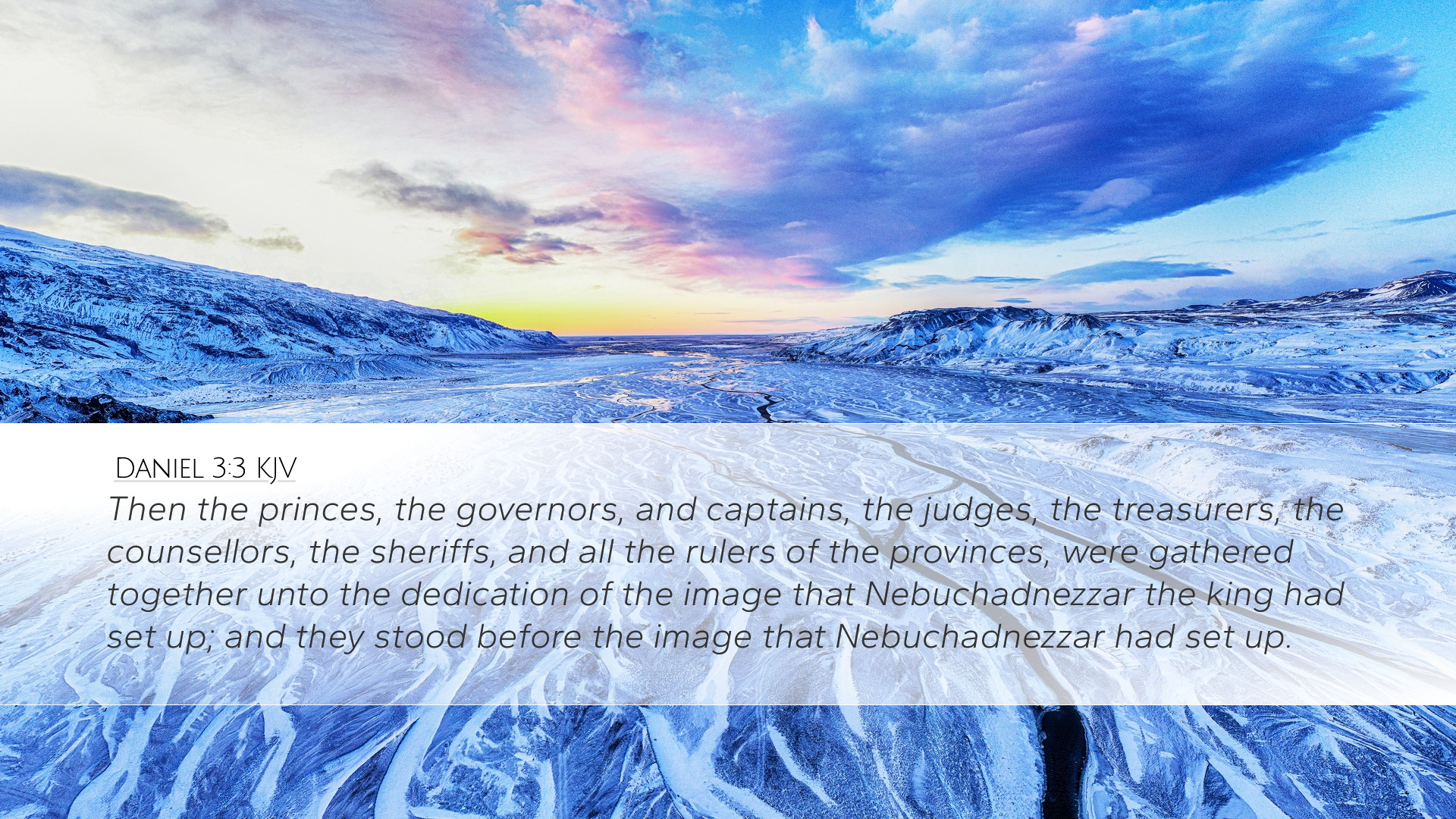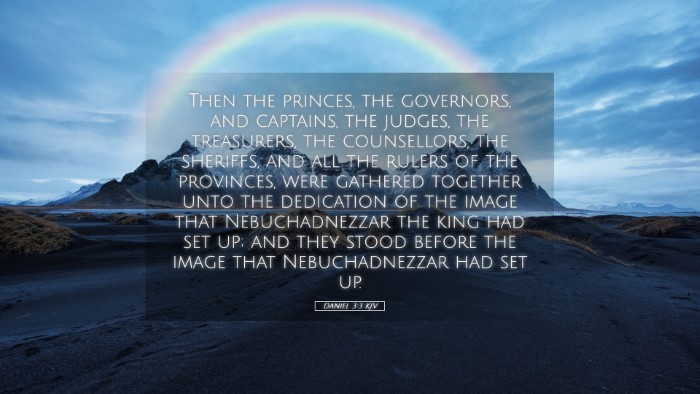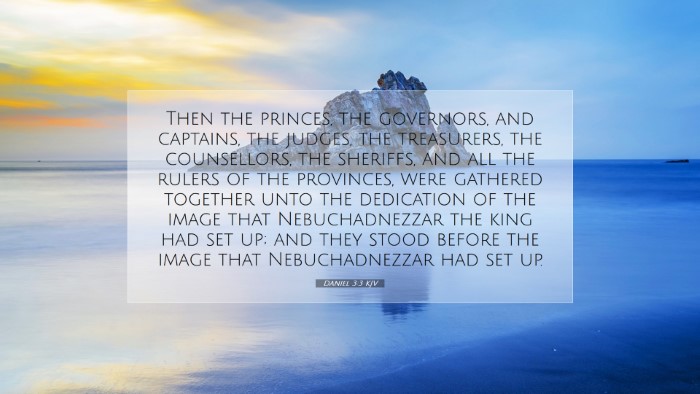Commentary on Daniel 3:3
Daniel 3:3 states: “Then the satraps, the prefects, and the governors, the counselors, the treasurers, the justices, the magistrates, and all the officials of the provinces gathered for the dedication of the image that King Nebuchadnezzar had set up. And they stood before the image that Nebuchadnezzar had set up.”
Contextual Overview
This verse occurs in an important narrative within the Book of Daniel, specifically within the account of the fiery furnace. The chapter depicts King Nebuchadnezzar's attempt to unify his kingdom through the worship of a golden image. This golden statue represents not just his power but the coercive force of the Babylonian Empire, beckoning all subjects to acknowledge its dominance.
Analysis of Key Elements
-
The Gathering of Officials:
The diverse group mentioned—satraps, prefects, governors, and counselors—emphasizes the political structure of Babylon. As Matthew Henry notes, this scene illustrates the widespread influence of Nebuchadnezzar and the sheer authority he wielded. The gathering is reminiscent of royal decrees in ancient empires, where loyalty is motivated by fear and necessity.
-
The Image of Gold:
The statue symbolizes more than just physical imagery; it's a representation of idolatry and the clash between faith and state. Albert Barnes points out that the golden image signifies the oppression of true worship. It challenges the faith of the Jews in Babylon, portraying the temptation to conform to societal pressures versus adhering to divine commands.
-
The Role of the King:
Nebuchadnezzar's authority in this context is significant. Adam Clarke emphasizes the king's egotism and his desire for absolute sovereignty, which manifests in the establishment of a central object of worship—his creation. This enforces the idea that human power seeks to replace divine authority.
Theological Implications
The verse raises questions about idolatry, loyalty, and faithfulness in the face of dismissive authority. It poses challenges relevant to believers in modern contexts where secularism and pluralism pressure individuals to compromise their faith.
-
The Nature of Idolatry:
Idolatry is not merely the act of bowing to statues; it is the heart's alignment with things that jeopardize one’s relationship with God. As emphasized by Matthew Henry, any idol—whether material or ideological—stands against God’s sovereignty and leads believers away from true worship.
-
Courage in Faith:
This narrative provides a backdrop for understanding courage in faith. The officials gathered exhibit the power of collective compulsion, but the subsequent actions of Shadrach, Meshach, and Abednego demonstrate faithfulness to God's commandments (Daniel 3:17-18). Albert Barnes notes that true believers must sometimes stand apart from society's dictates, showing faith in confrontation.
Practical Applications
As ministers and students reflect on this passage, several applications emerge:
-
Identify Modern Idols:
Believers are called to recognize and confront modern idols that demand allegiance. This may involve career ambitions, societal expectations, or material pursuits that distract from spiritual commitments.
-
Courageous Faith:
Just as Shadrach, Meshach, and Abednego exemplified unwavering faith, today’s Christians are encouraged to stand firm in their beliefs amidst societal pressures that challenge their faith. Pastors should emphasize the need for a community that supports such courageous faith.
-
Teach about God’s Sovereignty:
The prevailing power of God is a theme throughout Scripture. The narrative encourages reflection on God’s eternal kingdom in contrast to temporal earthly empires, motivating believers to trust in God’s ultimate authority.
Conclusion
Daniel 3:3 serves as a poignant reminder of the struggles faced by believers in a world that often demands allegiance to earthly powers over God. By examining this verse in light of the commentaries by Matthew Henry, Albert Barnes, and Adam Clarke, we glean insights that encourage both personal application and communal reflection in the pursuit of faithful living.


